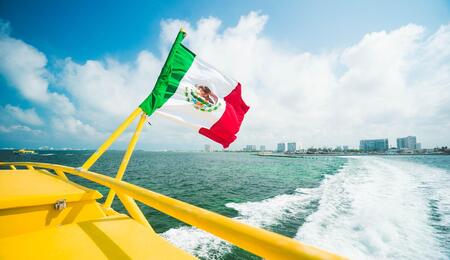Mexico Closer to Legalisation as Congress Passes Bill

Mexico has been all over the news in recent months as the country’s lawmakers have virtually dramatised their introduction of a law that will make cannabis legal for recreational, medical, and scientific purposes. On Wednesday, the Mexican Congress finally moved forward, showing confidence legalisation will happen sooner rather than later.
Mexican Lawmakers approved the bill on Wednesday night (March 10) with 316 votes in favour and 127 against it. The vote was followed by lengthy discussions but is now ripe for the next step, allowing the Senate to review and approve the bill. The bill has been backed by President Andres Manuel Lopez Obrador's administration, who hopes it will help the country combat its drug cartels that spread terror and violence.
The bill would also bring Mexico into a rare company of countries with a legal cannabis industry, such as Canada and Uruguay. When finally approved, it will make Mexico the largest cannabis market in the world, in terms of the population that the market is going to serve, replacing Canada.
A lot of Canadian and U.S. companies would be fast to plant their brands in Mexico. Many of these companies have been delaying making their significant investments, mostly because of the uncertainty instilled in them by the back-and-forth steps of Mexican lawmakers. With a regulated market, Mexicans would be able to use five different types of licenses, including for cultivation, transformation, sales, scientific research, or international trade.
People under the age of 18 would not be allowed to buy cannabis, nor would they be able to grow, possess or consume cannabis or any products containing cannabis. All these privileges could be used once turning 18.
Legalisation will open up new financial opportunities for Mexicans, both investments from abroad and the option to launch your own business.
Mexican President supports the bill
Lopez Obrador has said that decriminalising marijuana and other substances could help the country in its battle with trouble-bringing drug cartels. For years, the country has been marred by the feuding cartels, and the bill is seen as something that could help security and safety. As the bill's influence grows and more people use it, less will become the power of underground cartels which dominate trading drugs. “Today we are making history,” Simey Olvera, a deputy who voted for the bill, said.
“With this, the false belief that cannabis forms part of Mexico’s serious health problems is left behind,” Olvera, who’s a member of the President’s left-wing Morena Party, added. Members of the right-wing Institutional Revolutionary Party (PRI) and the conservative National Action Party (PAN) are opposing the legislation.
However, since the ruling Morena party has a majority in both chambers of Congress, it is with great certainty the bill will become an actual law. Obrador assumed office in 2018, and since, he has been implementing a “Hugs, not bullets” policy (Abrazos no balazos). With that, his administration addresses social inequality and poverty apparent in the country, fueled by drug-related issues. While the president has declared an end to the war on drugs in Mexico, cartels-infused violence has not stopped, unfortunately.
“[For] Mexico, given its size and its worldwide reputation for being damaged by the drug war, to take this step is enormously significant,” said John Walsh, who helms drug policy for the Washington Office on Latin America, a U.S. advocacy group, reports the New York Times. In 2013, Uruguay became the world’s first country to legalise the production and sale of cannabis. Other countries in the region, such as Chile, Colombia, Argentina, and Peru, allow the plant's medical use.
Ease of regulation in Mexico could trigger wider legalisation there too. In 2018, Canada became second in the world to legalise adult-use marijuana, and the number of U.S. states that have embraced similar regulations has grown as well, with Democrats in the Senate vowing to scrap federal prohibition of the drug this year. As Walsh puts it, “North America is heading toward legalisation.”



